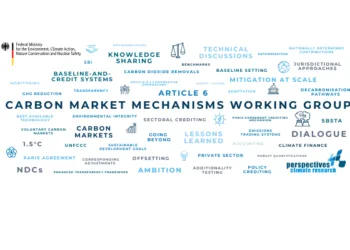Initiatives & Policy Dialogues >>
Initiative overview
International climate finance plays a pivotal role in enabling developing countries to pursue low-carbon (mitigation) and climate-resilient (adaptation) pathways. It helps bridge the financing gap for projects that would otherwise struggle to attract investment, particularly in regions with limited access to capital. Among others, grants-based climate finance and highly concessional loans can support local capacity-building, the piloting of innovative solutions, and policy alignment with the Paris Agreement. It also acts as a catalyst for leveraging private sector participation, thereby multiplying the impact of public funds. Ultimately, international climate finance is crucial for addressing the climate crisis equitably and ensuring that no countries, regions, indigenous peoples and local communities are left behind.
BACKGROUND & RATIONALE
“While the USD 100 billion climate finance target was a significant milestone, it has proven to be insufficient – in both quantity and quality – given the scale of climate challenges we already face. We need to be honest about the shortcomings in meeting this goal, particularly for the world’s most vulnerable countries. The New Collective Quantified Goal on Climate Finance and its leverage need to be more ambitious, inclusive, and needs-based, truly reflecting the urgency of the climate crisis and the financial flows necessary to address it effectively.”
The Climate Finance team at Perspectives endeavors to provide thought leadership on climate finance, including on its quality, accessibility and how it can deliver on countries’ climate mitigation, adaptation and loss and damage objectives.
Research reports
Key Publications
- 01/2026: Debt-for-Carbon: Using Carbon Credits for Debt Relief, discussion paper co-authored with Environmental Defense Fund
- 11/2025: Updated Pocket Guide to Finance under the UNFCCC, guide with ecbi
- 11/2024: Sida’s Climate Mitigation Finance: a Portfolio Evaluation, working paper for The Expert Group for Aid Studies (EBA)
- 10/2024: Swedish Climate-change Mitigation Finance, evaluation report for The Expert Group for Aid Studies (EBA)
- 08/2024: New Collective Quantified Goal on Climate Finance, briefing note with ecbi
- 10/2023: International Climate Finance from a Global Perspective, working paper for the Austrian Foundation for Development Research
- 10/2022: Handbook of International Climate Finance, available via Edward Elgar Publishing
- 05/2022: Definitions and accounting of climate finance: between divergence and constructive ambiguity, research article in the academic journal Climate Policy
- 07/2020: Do Multilateral Development Bank Trust Funds Allocate Climate Finance Efficiently?, research article in the academic journal Climate Policy, Special Issue ‘Adapting to Climate Change: The Interplay between International and Domestic Institutions in the Context of Climate Finance’
- 07/2020: Mobilising private climate finance for sustainable energy access and climate change mitigation in Sub-Saharan Africa, research article in the academic journal Climate Policy
- 06/2020: Climate Change-related Trust Funds at the Multilateral Development Banks, research report published by the Deutsche Gesellschaft für Internationale Zusammenarbeit (GIZ) GmbH
- 08/2018: Linking the Clean Development Mechanism with the Green Climate Fund: Insights from Practitioners and Decision Makers in Africa, research report for the German Federal Ministry for the Environment, Nature Conservation, Building and Nuclear Safety (BMUB)
- 05/2016: Investing in Ambition: Analysis of the financial aspects in (Intended) Nationally Determined Contributions, briefing paper for BMUB
Outreach activities
- 11/2024: Official UNFCCC Side Event on Nordic Climate Finance at COP29
- 10/2022: International climate finance: need for reforms to increase efficiency and effectiveness, public hearing in the German Bundestag’s Committee on Economic Cooperation and Development
Consulting projects
- 2018-2024: Climate Finance Innovators (CFI): The project aims to develop replicable climate financing models in Ethiopia, Senegal and Uganda that are based on the Clean Development Mechanism elements and activities. The project thereby establishes innovative linkages between UNFCCC market mechanisms and international climate financing institutions such as the Green Climate Fund (GCF). Among others, through CFI Perspectives was one of the technical partners of the Government of Ethiopia for the development of FP243: Climate-resilient community access to safe water powered by renewable energy in drought-vulnerable regions of Ethiopia, an innovative project approved by the GCF in October 2024.
Media Appearances
- 01/2026: Carbon credits could back debt-for-climate swaps, interview with Carbon Pulse
- 07/2025: ” Europe doesn’t need more slogans – it needs institutional realism“, interview with Dimokratia ESG Special. Original in Greek.
- 11/2024: “COP29: Six key reasons why international climate finance is a ‘wild west’“, coverage in Carbon Brief








